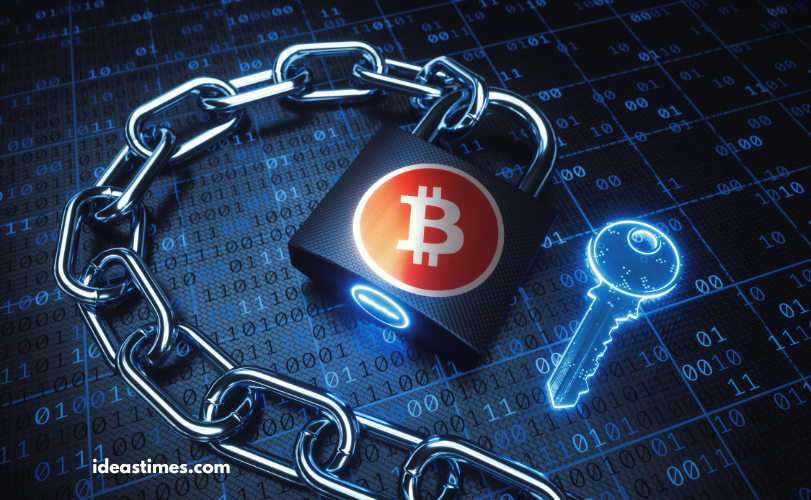In today’s digital world, blockchain and privacy have become essential concerns for individuals and organizations. With increasing cyber threats, there is a growing need for secure, transparent, and decentralized solutions. Blockchain technology is emerging as a powerful tool to enhance privacy while ensuring data integrity. Below, we explore seven key benefits of blockchain that significantly enhance security and privacy.
1. Decentralization Eliminates Single Points of Failure
Blockchain’s decentralized structure is one of its most valuable features. Traditional systems rely on centralized servers, which are prone to attacks. In contrast, blockchain operates on a network of distributed nodes. If one node fails, the rest continue to function, preserving the network’s integrity. This decentralized model reduces the risk of single points of failure, making it much harder for attackers to compromise the system. The decentralization of blockchain and privacy measures work together to create a more resilient and secure network, crucial in today’s threat landscape.
2. Immutability Safeguards Data Integrity
Data recorded on a blockchain cannot be altered or deleted. This immutability ensures that once data is entered, it remains tamper-proof. In industries like finance and healthcare, where data accuracy is crucial, blockchain provides an unchangeable record that safeguards against fraud. The immutability of blockchain data enhances trust and transparency while ensuring that the information remains secure. When considering blockchain and privacy, this feature is vital because it guarantees that sensitive information is protected and remains trustworthy over time.
3. Transparency with Privacy Controls
Blockchain offers transparency by allowing participants to view transactions. However, it also provides robust privacy controls. Advanced cryptography enables users to protect their identities and sensitive information. This combination of transparency and privacy makes blockchain ideal for industries requiring both. It ensures that while data is accessible for verification, it remains protected from unauthorized access. The dual benefits of blockchain and privacy are particularly appealing to businesses that need to maintain confidentiality without sacrificing transparency, making it a preferred choice for secure data management.
4. Enhanced Identity Management
Blockchain revolutionizes identity management by giving individuals control over their personal information. Traditional identity systems often involve intermediaries who store and manage data. Blockchain eliminates the need for these intermediaries, reducing the risk of identity theft. Users can verify their identities securely and privately, ensuring that their data is only accessible to trusted parties. The integration of blockchain and privacy in identity management is a game-changer, providing a secure framework that empowers users to maintain control over their personal data.
5. Smart Contracts Ensure Secure Transactions
Smart contracts are self-executing contracts with terms directly written into code. These contracts automatically enforce agreements, reducing the need for intermediaries and minimizing the risk of fraud. By using smart contracts, blockchain ensures that transactions are secure and compliant with agreed-upon terms. This level of automation enhances trust between parties and protects against fraudulent activities. Moreover, the relationship between blockchain and privacy in smart contracts is pivotal, as it guarantees that all transactions are not only secure but also private, shielding sensitive information from unauthorized access.
6. Controlled Access with Permissioned Blockchains
Permissioned blockchains allow organizations to control who can join the network. This controlled access is crucial for maintaining privacy in sectors like healthcare and finance. By restricting access to authorized participants, permissioned blockchains protect sensitive information from unauthorized entities. This feature ensures compliance with privacy regulations while leveraging the benefits of blockchain technology. The synergy of blockchain and privacy in permissioned networks provides a tailored solution that balances the need for access control with the necessity of safeguarding confidential data.
7. End-to-End Encryption for Secure Communication
Blockchain uses end-to-end encryption to secure data during transmission. This encryption ensures that only the intended recipient can access the information, making it nearly impossible for unauthorized parties to intercept or decipher it. By providing a secure communication channel, blockchain enhances privacy and protects sensitive information from potential breaches. The importance of blockchain and privacy is further highlighted in this context, as encrypted communication is essential for maintaining confidentiality and security in various sectors, including finance and healthcare.
Conclusion
The integration of blockchain and privacy offers a powerful solution to the growing challenges of data security. With features like decentralization, immutability, smart contracts, and end-to-end encryption, blockchain significantly enhances privacy and security. As cyber threats continue to evolve, adopting blockchain technology is crucial for protecting sensitive data. By leveraging blockchain, organizations can ensure that their information remains secure, private, and tamper-proof in an increasingly digital world. The future of blockchain and privacy is promising, offering a foundation for secure, transparent, and private digital interactions.



